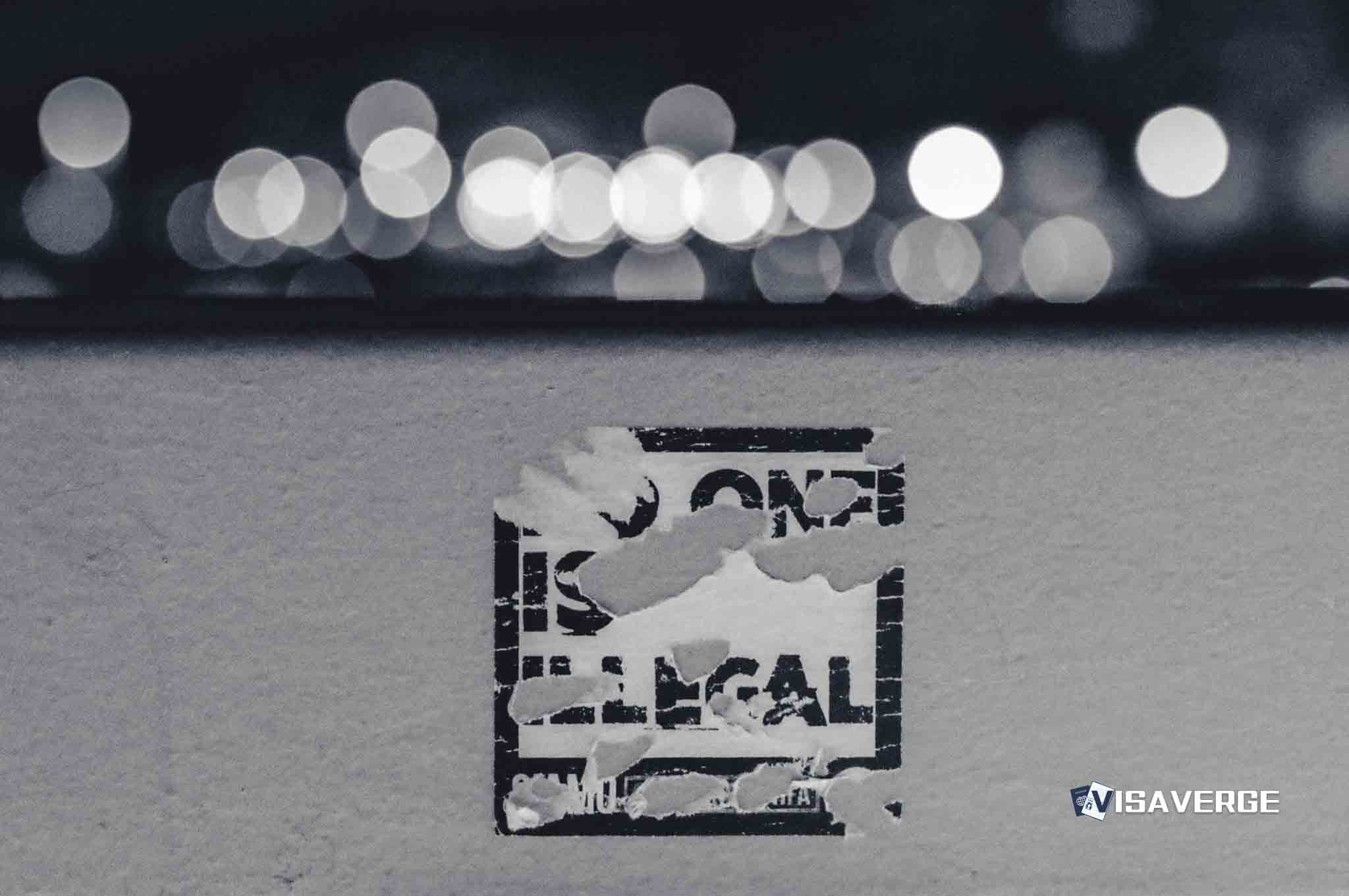Understanding Your Rights as an Undocumented Immigrant
In today’s increasingly complex immigration landscape, it’s crucial for undocumented immigrants to be aware of their legal rights. Despite the challenges you might face due to your immigration status, you are entitled to certain protections under U.S. law. This blog post aims to provide a clear and accessible overview of what your rights are and how you can assert them, focusing specifically on crucial areas such as legal representation, healthcare, education, and protection against discrimination and abuse.

What Legal Protections Do Undocumented Immigrants Have?
Right to Legal Representation
One of the foundational legal rights that undocumented immigrants have is the right to legal representation. This means that if you are facing deportation or any legal issue related to your immigration status, you have the right to hire an attorney to represent you in court. However, it’s important to note that the government is not required to provide an attorney for you, as is the case in some criminal proceedings. This highlights the importance of seeking out immigrant legal aid which often comes from non-profit organizations dedicated to assisting undocumented individuals navigate the legal system.
Healthcare Rights
When it comes to healthcare, undocumented immigrants are in a challenging position. Federal and state laws restrict access to certain publicly funded health programs. However, there are some protections in place. For instance, Emergency Medical Treatment and Active Labor Act (EMTALA) mandates that hospital Emergency Departments treat and stabilize any patient, regardless of immigration status or ability to pay. Additionally, several states offer more expansive healthcare programs to undocumented children and pregnant women.
Education for Children
A landmark Supreme Court decision, Plyler v. Doe (1982), guarantees the right to K-12 education for children regardless of their immigration status. This decision means that undocumented children cannot be denied access to public schooling, and schools cannot require students to prove their immigration status to enroll.
Protection Against Discrimination and Abuse
Undocumented immigrants are also protected under U.S. laws that prohibit discrimination based on race, national origin, and other factors. This means employers, housing providers, educational institutions, and other entities cannot discriminate against you solely because of your undocumented status. Moreover, there are specific visas, such as the U and T visas, available for undocumented immigrants who are victims of crimes or human trafficking in the U.S., offering a pathway to legal status for those who assist law enforcement in the investigation or prosecution of criminal activity.
How Can Undocumented Immigrants Exercise Their Rights?
Seeking Legal Aid and Representation
It’s crucial to seek legal assistance if you find yourself facing any legal issues related to your immigration status. Many non-profit organizations and legal aid societies offer free or low-cost services to undocumented immigrants. These organizations can provide advice, represent you in court, and help you understand your options for potentially adjusting your immigration status.
Health and Education Access
While accessing healthcare and education services, it’s important to be aware of your rights and the specific programs available in your state that cater to undocumented immigrants. Advocating for yourself and asking questions about your eligibility for certain services without disclosing your immigration status can help protect your rights.
Reporting Discrimination and Abuse
If you face discrimination or are a victim of a crime, reporting these incidents can be challenging, yet it’s a critical step in exercising your rights and seeking justice. Special visas and protections are in place to assist undocumented immigrants in these situations, and various organizations are available to help guide you through the process of reporting and applying for these protections.
Conclusion
While navigating life as an undocumented immigrant in the U.S. can be daunting, being informed about your rights is a crucial first step in ensuring your protection and well-being. Whether it’s accessing legal aid, healthcare services, or education, understanding and asserting your rights can make a significant difference in your experience and opportunities in the country.
For further reading on immigration trends and reforms, be sure to check out the following articles:
- Canadian millennials surpass baby boomers due to immigration trends
- Idaho Senate urges federal immigration reform with new resolution
- Latino congress members push for changes in immigration document translations
These resources not only provide informative insights into the current state and future directions of immigration policies but also highlight the ongoing discussions and efforts aimed at improving the immigration system for individuals like yourself.
Still Got Questions? Read Below to Know More
What should I do if my employer is threatening to report my undocumented status if I don’t accept lower pay?
If your employer is threatening to report your undocumented status because you refuse to accept lower pay, you should know there are steps you can take to protect yourself. Firstly, it’s important to understand that all workers in the United States, regardless of immigration status, have certain rights under federal and state laws.
- Document Everything: Keep a record of all the threats and any instances of wage theft or other violations. This includes saving emails, messages, keeping a diary of incidents with dates and descriptions, and any other relevant documentation.
- Seek Legal Help: Reach out to an immigration lawyer or a workers’ rights organization. They can advise you on your rights and the best course of action. Some organizations provide services for free or at a reduced cost to low-income individuals.
-
Know Your Rights: Employers are not allowed to exploit or discriminate against workers based on immigration status. Remember, retaliation against workers for reporting violations is against the law.
You can find resources and information at:
– National Employment Law Project (www.nelp.org)
– Immigrant and Employee Rights Section (IER) of the Department of Justice (www.justice.gov/crt/immigrant-and-employee-rights-section)
– Legal Aid at Work (www.legalaidatwork.org)
It is essential not to confront your employer without legal advice because of the potential risks to your immigration status. An experienced lawyer can guide you through the process while protecting your rights.
Where can I find a clinic that will treat me without asking about my immigration status?
If you are looking for a clinic where your immigration status won’t be questioned, consider the following options:
- Community Health Centers: These are federally-funded and provide services regardless of your ability to pay or your immigration status. You can search for a health center near you by using the Health Resources and Services Administration’s (HRSA) Find a Health Center tool at: Find a Health Center.
- Free Clinics: These clinics often serve uninsured or low-income patients and typically do not require documentation about immigration status. To find a free clinic in your area, visit the National Association of Free & Charitable Clinics website at: NAFCC Find a Clinic.
-
Public Hospitals: In many places, public hospitals are legally mandated to treat patients in need of emergency care, regardless of their immigration status. For non-emergency care, policies can vary, so it’s best to contact the hospital directly.
“Do not hesitate to seek care if you need it. Health providers are there to help, and many have policies in place to protect your privacy and confidentiality. Your health is important, and there are resources available to support you.” Remember that it is always a good practice to inquire directly with the clinic about their confidentiality policies before your visit to ensure your comfort and safety.
Are there safe places I can seek help if I’m an undocumented victim of domestic violence?
Yes, if you’re an undocumented victim of domestic violence, there are safe places and resources where you can seek help. Protecting your safety and well-being is a priority, and your immigration status should not deter you from seeking assistance.
Firstly, you can reach out to the National Domestic Violence Hotline at 1−800−799−SAFE (7233) or visit their website thehotline.org. They provide confidential support 24/7, and they can help you without reporting your immigration status to the authorities. Additionally, you can seek support services through local shelters and organizations focused on helping domestic violence survivors. These groups often offer counseling, legal advice, and shelter, all while respecting your confidentiality.
Secondly, the U.S. Citizenship and Immigration Services (USCIS) offers specific immigration options for undocumented individuals experiencing domestic violence, such as the U Visa for victims of certain crimes, including domestic violence, or the Violence Against Women Act (VAWA) that allows for certain spouses, children, and parents to file a petition. For more information, visit the official USCIS website on humanitarian programs. Remember, when accessing help, your safety is the top concern, and there are laws and services designed to protect and assist you regardless of your immigration status.
How can I enroll my undocumented kids in school without risking our family’s safety?
Enrolling your undocumented children in school in the United States is a concern that many parents have. It’s important to know that your children have the right to a public education regardless of their immigration status. The U.S. Supreme Court case Plyler v. Doe (1982) established that all children are entitled to a K-12 education. Here are clear steps to follow for a safe enrollment process:
- Gather Necessary Documents: Schools may ask for proof of your child’s age and residency within the school district. Documents you might provide include a birth certificate (a foreign birth certificate is acceptable), utility bills, lease agreements, or a letter from a landlord.
- Understand Your Rights: Schools are not allowed to enquire about a student’s immigration status due to the Family Educational Rights and Privacy Act (FERPA). According to FERPA, schools must keep student information confidential and cannot share it with immigration enforcement agencies.
-
Seek Assistance: If you need help or have concerns about the enrollment process, you might contact local community organizations that work with immigrant families. They can offer support and advice on how to navigate the system without endangering your family.
Remember, no data gathered by the school can be used against you for immigration enforcement purposes, as schools do not participate in immigration enforcement. This safeguard is designed to allow your children to access education without jeopardizing your family’s safety. For further information, you may visit the U.S. Department of Education’s page on the Rights of All Children to Enroll in School: Resource on School Enrollment.
“All children in the United States are entitled to a public elementary and secondary education, regardless of their or their parents’ actual or perceived national origin, citizenship, or immigration status.” – U.S. Department of Education
Keep in mind that while the federal policies ensure the right of access to education, procedures can vary by state and school district, so it’s a good idea to check the specific requirements of your local district’s website or contact them directly.
Can my undocumented child still go to college after finishing high school in the U.S.?
Yes, your undocumented child can still go to college after finishing high school in the U.S. Access to higher education for undocumented students varies by state, but there are no federal laws prohibiting their admission to U.S. colleges. Here’s what you need to know:
- State Laws: Some states have laws that allow undocumented students to enroll in state colleges and universities. For example, California allows undocumented students to attend college and qualify for in-state tuition under certain conditions. It’s important to check whether your state has such provisions.
- Private Institutions: Many private colleges and universities in the U.S. admit undocumented students. These institutions may also offer financial aid or scholarships that don’t require U.S. citizenship or legal permanent residency.
- Deferred Action for Childhood Arrivals (DACA): If your child is eligible for DACA, they can get temporary protection from deportation and work authorization, which can help with college expenses. However, please note that the availability of DACA has been subject to political and legal changes.
It is recommended to look for educational institutions that are friendly to undocumented students, known as “sanctuary campuses”, and to research specific scholarships aimed at helping undocumented students. Additionally, organizations like TheDream.US provide financial assistance specifically for DREAMers – undocumented students brought to the U.S. as children.
For further information and to understand the guidance for undocumented students in your state, you may refer to the National Immigration Law Center or College Board’s repository for undocumented students:
- National Immigration Law Center: https://www.nilc.org/issues/education/access-to-postsecondary-education/
- College Board – Advising Undocumented Students: https://professionals.collegeboard.org/guidance/financial-aid/undocumented-students
Remember, while college access can be more challenging for undocumented students, numerous resources exist to help overcome these obstacles.
Learn Today:
Glossary of Immigration Terminology
Undocumented Immigrant:
An individual who resides in a country without proper legal documentation or authorization from the government to be present within its borders.
Legal Representation:
The right for individuals, including undocumented immigrants, to hire an attorney to advocate for them in legal matters, such as deportation proceedings or issues related to immigration status.
Immigrant Legal Aid:
Legal assistance provided by non-profit organizations or legal aid societies to help undocumented individuals navigate the legal system and understand their rights and options.
Emergency Medical Treatment and Active Labor Act (EMTALA):
A federal law requiring hospital emergency departments to screen, treat, and stabilize any patient in need of emergency medical care, regardless of their immigration status or ability to pay.
Plyler v. Doe (1982) Decision:
A landmark U.S. Supreme Court ruling that guarantees access to K-12 education for children, irrespective of their immigration status, preventing schools from denying enrollment based on legal residency.
U and T Visas:
Special visas available for undocumented immigrants who are victims of crimes or human trafficking in the U.S., offering a pathway to legal status for those who cooperate with law enforcement in the investigation or prosecution of criminal activities.
Discrimination Protections:
Laws that prohibit discrimination based on race, national origin, or other factors, safeguarding undocumented immigrants from unfair treatment by employers, housing providers, educational institutions, and other entities.
Legal Status Adjustment:
The process through which individuals, including undocumented immigrants, can potentially change their immigration status to obtain legal authorization to reside and work in a country.
Advocacy:
The act of supporting and speaking up for oneself or others to promote and protect rights and interests, often crucial for undocumented immigrants in accessing essential services and asserting their legal protections.
Visa:
An official document issued by a country’s government that allows an individual to enter, stay, or leave the country for a specific purpose or duration.
Human Trafficking:
The illegal trade of individuals through force, fraud, or coercion for the purpose of exploitation, which can impact undocumented immigrants and may qualify them for special protections and assistance.
Navigating the rights of undocumented immigrants can be complex, but understanding and asserting these rights are key to your well-being. For more immigration trends and crucial insights, hop over to visaverge.com. Keep informed, stay empowered!
Useful Resources
- Right to Legal Representation for Undocumented Immigrants
- Healthcare Rights for Undocumented Immigrants
- Education Rights for Undocumented Immigrant Children
Below are three official, authoritative sources that directly address the topics listed:
- Right to Legal Representation:
- U.S. Department of Justice – Executive Office for Immigration Review (EOIR)
“Legal Orientation Program”
https://www.justice.gov/eoir/legal-orientation-program
- U.S. Department of Justice – Executive Office for Immigration Review (EOIR)
- Healthcare Rights for Undocumented Immigrants:
- U.S. Centers for Medicare & Medicaid Services
“Emergency Medical Treatment & Labor Act (EMTALA)”
https://www.cms.gov/Regulations-and-Guidance/Legislation/EMTALA
- U.S. Centers for Medicare & Medicaid Services
- Education Rights for Undocumented Immigrant Children:
- U.S. Department of Education
“Plyler v. Doe and the Rights of Undocumented Immigrants to a Public Education”
https://www2.ed.gov/about/offices/list/oela/plyler-v-doe-and-undocumented.html
- U.S. Department of Education
This Article In A Nutshell:
In the U.S., undocumented immigrants have rights. They can get legal aid, emergency healthcare, education for their kids, and protection from discrimination/abuse. Legal aid is essential. If facing issues, seek help from nonprofits. Knowing available services and reporting abuses are key steps to protect yourself. Being informed and asserting your rights is vital.







